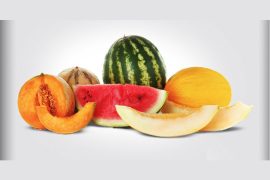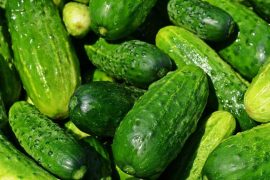A recent study, published in the Journal of the American Medical Association on November 30, compared the impact of a vegan diet to an omnivorous diet on cardiovascular health and weight loss in 22 pairs of identical twins. Each twin pair was assigned one to follow a vegan diet and the other an omnivorous diet for eight weeks. The diets were both healthy, featuring vegetables, legumes, fruits, and whole grains. The key difference was the inclusion of meat products in the omnivorous diet.
During the trial, the twins were served prepared meals for the first four weeks and then prepared their own meals with the guidance of a registered dietitian for the next four weeks. Both groups logged their food consumption throughout the study. At the trial’s conclusion, the twin following the vegan diet exhibited lower levels of low-density lipoprotein cholesterol (LDL-C or “bad” cholesterol) compared to the omnivorous twin. The vegans started with an average LDL-C level of 110.7, which dropped to 95.5, while the omnivores started at 118.5, which decreased to 116.1.
The researchers also noted that the vegan group had lower fasting insulin levels and lost an average of 4.2 pounds more than their omnivorous counterparts. When questioned about the initial cholesterol level differences between the groups, the study author, Christopher Gardner, attributed them to chance. These findings suggest potential cardiovascular benefits and weight loss associated with a vegan diet compared to an omnivorous diet.
Props for using twins:
The complexity of tracking the benefits of veganism, often influenced by various confounding factors like social environment or genetics, can complicate study outcomes. However, this study took a unique approach by focusing on identical twins, which helped control for these external factors to a large extent. By maintaining consistency in most variables, except for the inclusion of animal products in the omnivorous diet, the trial aimed to isolate the impact of diet on health outcomes.
Moreover, the study recognized that not all vegan diets are inherently healthy, as they can vary widely in nutritional quality. To address this, the researchers closely monitored the participants’ dietary habits, ensuring that the study considered the content and nutritional balance of the vegan diets. This level of control added a rigorous element to the study, addressing potential variations in the quality of vegan diets and enhancing the reliability of the findings.
The acknowledgment of the potential pitfalls in defining vegan diets solely by exclusion and the careful monitoring of participants’ nutritional intake contribute to the robustness of the study’s methodology. This approach allows for more nuanced insights into the health outcomes associated with vegan diets and helps distinguish between the impact of veganism as a lifestyle and the nutritional quality of the diet itself.
Dietary satisfaction lower among vegans:
The study did encounter some complications, including a small sample size and a noted deficit in overall daily calorie intake for the vegan participants compared to the omnivores. The researchers pointed out that the calorie deficit might explain the non-significant reduction in weight and could partially account for the decrease in LDL cholesterol. Additionally, participants on the vegan diet reported a decrease in diet satisfaction when eating out, whereas those on the omnivorous diet either experienced an increase in satisfaction or maintained baseline levels.
Addressing these concerns, main author Christopher Gardner explained that the calorie deficit was not inherent to the study’s design but rather resulted from the vegan participants not consuming all the food provided in the first four weeks. He emphasized that all groups received the same number of calories; the difference lay in the amount consumed by the vegan group.
Gardner acknowledged that vegan diets can be restrictive and should align with individuals’ preferences rather than conforming to a specific dietary approach. The study raised questions about the real-world applicability of vegan diets, considering reported dietary dissatisfaction among participants. Gardner agreed that low diet satisfaction suggests potential difficulty in maintaining such a diet over the long term, emphasizing the need for studies covering extended periods to assess the sustainability of dietary interventions.
Despite these challenges, an intriguing finding was that a significant majority of twins assigned to a vegan diet expressed a strong intent (91%) to continue these habits in their normal lives, surpassing the twins assigned to a meat-eating diet (67%). This inclination toward sustaining vegan habits suggests a potential positive impact of the dietary intervention on participants’ attitudes and preferences.
Disclaimer:
The information contained in this article is for educational and informational purposes only and is not intended as a health advice. We would ask you to consult a qualified professional or medical expert to gain additional knowledge before you choose to consume any product or perform any exercise.








